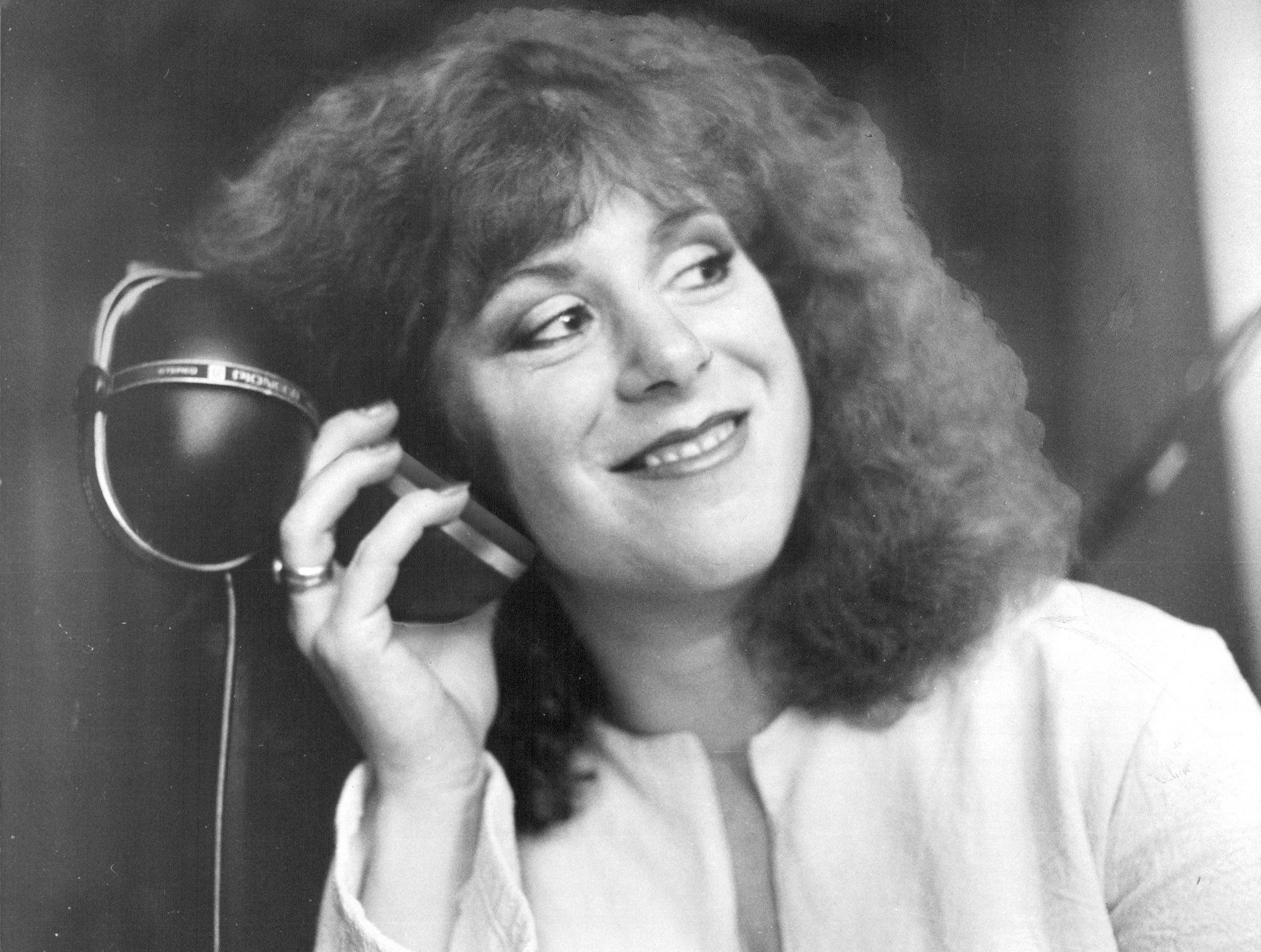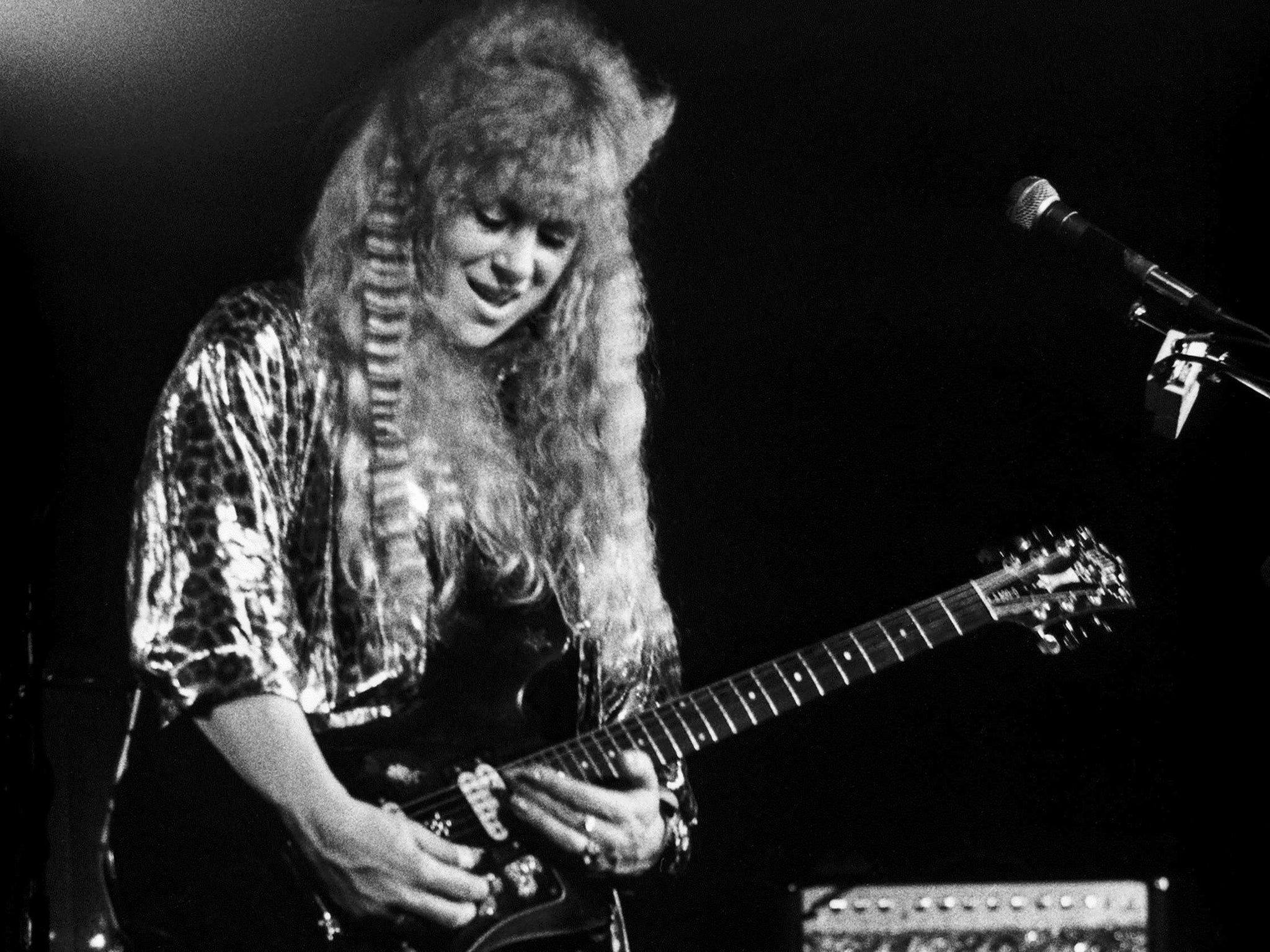Ellen McIlwaine: Fiery guitarist and singer who refused to play by the rules
As well as fronting a woman-led rock band, a rare thing in the Sixties, the musician refused to be second best to her male counterparts

Ellen McIlwaine, a fiery slide-guitarist and singer who came to prominence in the late 1960s, has died aged 75. She performed with Jimi Hendrix in Greenwich Village and formed what was then a rare thing – a woman-led rock band – only to strike out on her own after she realised her bandmates “expected me to do the laundry after we finished onstage”.
Raised in Japan by American missionaries, McIlwaine grew up listening to Japanese folk and classical music, as well as the New Orleans soul and blues she heard on the radio. “If you know Ray Charles, you can tell where I got everything I know,” she once told The Washington Post. “It’s a little hard to see because I’m a different colour and a different sex.”
McIlwaine played the harmonica, accompanied herself on the piano, and sang her own songs with a voice that was both delicate and booming, echoing through the Gaslight Cafe and Cafe Au Go Go in Greenwich Village. But she was perhaps best known as a masterful guitarist who danced between frets and used unconventional tunings, inspired by blues musician Johnny Winter and her own exposure to Japanese music.
“She is completely original and totally alluring,” music journalist Rob Bowman wrote in a 1972 article for Beetle magazine. “She is far and away one of the best female guitarists in rock and she is definitely one of the best slide guitarists of either sex.” Interviewing McIlwaine in 2018 for Guitar Player magazine, Canadian blues guitarist Sue Foley said: “Ellen was one of the first females to play a really strident, aggressive style of slide, with no holds barred and totally in your face.”
McIlwaine toured with Winter and with blues musician Taj Mahal, recorded with former Cream bassist Jack Bruce, and befriended Hendrix in the late 1960s, when he was an up-and-coming guitarist performing with John Hammond. “We all called him ‘Dylan Black’ because of his hair,” she told Hendrix’s biographer Charles Cross. “Once you saw him, you didn’t forget him. It was like he was hot-combing it; it looked exactly like [Bob] Dylan’s.”
After honing her blues-based style in New York clubs, McIlwaine formed the band Fear Itself, which released its self-titled debut album in 1969. The record included a few songs written by McIlwaine, as well as her psychedelic arrangement of the gospel standard “In My Time of Dying”. But after about two years on the road, the band broke up, with McIlwaine saying that she was tired of being treated like a second-class musician.
“The guys all had their girlfriends along, and I was relegated to being one of the girlfriends until we got onstage,” she told the Raleigh News and Observer.
Resuming her solo career, she recorded two well-received albums for Polydor and appeared as the only female guitarist on the label’s 1974 compilation The Guitar Album, alongside musicians including Eric Clapton, John McLaughlin, T-Bone Walker and Roy Buchanan. She incorporated funk, reggae, country and jazz into her records, putting her own spin on songs such as Stevie Wonder’s “Higher Ground” – her cover was later sampled by Fatboy Slim – and Steve Winwood’s “Can’t Find My Way Home”.

In an interview, Taj Mahal recalled that McIlwaine had a “tremendous” guitar sound that was “very melodic, rhythmic as the bass. She had great outbursts of improvisation. You go out and hear people play, and they sound good: the melodies are nice, the fingerpicking style is nice, the instrument sounds real clean. But then you hear Ellen, and it’s like, ‘What? Listen to that.’”
“She played with a tremendous amount of energy,” he said, adding that she sometimes astonished audiences as a result. “I would say, ‘Girl, you are scaring them again.’”
McIlwaine developed a devoted following in Canada, where she lived for the last three decades of her life, and received a lifetime achievement award in 2019 from the Toronto Blues Society. But stardom eluded her in the US. In part, she suggested, her appeal was limited because she refused to conform to expectations of how a female musician should act. “I don’t want to dress in nudie clothes and jiggle just to sell more records,” she told Australia’s Sydney Morning Herald in 1980.
She also noted – as did critics – that her music defied straightforward genre labels. “Perhaps she is rock’s foremost female guitarist, perhaps fame will take her to concert halls and recording contracts on major labels, but it seems doubtful despite her abilities,” The Post’s music journalist Joseph Helguera wrote in 1975. “Her music is too much herself, in its melody, in its expression, in its entirety. She is reminiscent of no one else, of no one else’s style, a musical genre unto herself.”
Frances Ellen McIlwaine was born in Nashville on 1 October 1945 and was adopted as an infant. Her Southern Presbyterian parents took her to Kobe, Japan, where she started playing piano at age five and sang in a church choir. She found herself drawn to the music of artists like Fats Domino and Professor Longhair, even as she was told, “Rock’n’roll is blasphemy, Ellen; play a hymn.”
After graduating from the Canadian Academy, an international school in Kobe, she returned to the US to study at colleges in Tennessee and Georgia. McIlwaine was taking art classes in Atlanta when she bought an acoustic guitar, dropped out of school and began playing at coffee houses, where she was spotted by folk singer Patrick Sky. With his encouragement, she moved to Greenwich Village in 1966. (Sky died last month aged 80.)
McIlwaine’s earliest solo records included “Honky Tonk Angel” (1972), which featured an up-tempo cover of the soul song “Toe Hold”, and “We the People” (1973), with a title song inspired by Indian raga music. Her most recent album, “Mystic Bridge” (2007), was an eastern-tinged record made in collaboration with tabla player Cassius Khan.
Her friend Toews said that McIlwaine battled alcoholism and “helped many people through addiction” after joining Alcoholics Anonymous and getting sober in 1982. She never married and had no immediate surviving family. “She would have had 12 children if she hadn’t chosen music – if she had money,” Toews said.
McIlwaine volunteered at a children’s hospital and drove a school bus, which she decorated for Halloween with a skeleton she named Bob. In part, she took the driving job to support herself in between concerts. She had stopped getting invitations to perform at music festivals, where female guitarists were increasingly common after years in which McIlwaine was one of only a few women onstage.
“There was nobody there but me,” she told Guitar Player, looking back at the start of her career. “I was on the scene for maybe five years before Bonnie Raitt appeared, and Memphis Minnie was not somebody that anybody talked about.
“Being a female guitar player doesn’t need to have any restrictions, but other people who use that term might think it does. You have to play what comes out of you, and in order to do that, you can’t put the brakes on.”
Ellen McIlwaine, guitarist and singer, born 1 October 1945, died 23 June 2021
© The Washington Post



